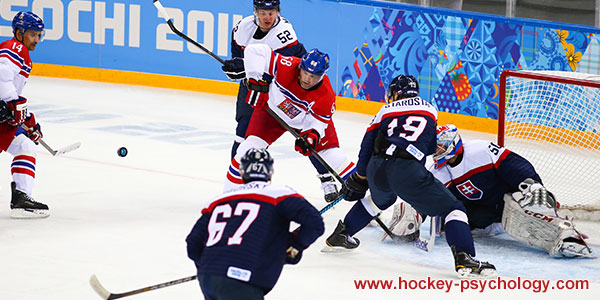
How the Tampa Bay Lightning Overcame Adversity
Do you think losing can lead to winning? Can obstacles lead to next level performance? Do you think adversity can be beneficial?
The answer to these three questions is both yes and no.
Losing, obstacles, and adversity are just circumstances. It is not your circumstances that affect your future but your mindset and your response which shape the eventual outcome.
Take the current adverse situation, the coronavirus pandemic has affected athletes throughout the world are facing.
The coronavirus has set into motion a number of challenging circumstances such as, social distancing, quarantining, inadequate practice facilities and equipment, lack of training partners and cancelled games/ season.
The adversity created by the coronavirus is just a circumstance. When you are faced with adverse circumstances, your mindset will determine your response and the effects of your response.
A negative mindset to the coronavirus will produce thoughts such as:
“I will never get back in shape.” “This season is a total loss.”
“Why even work out, if there are no games happening in the near future?”
When you respond in a negative manner, you will not look for ways to effectively process your circumstances, find new outlets to utilize your time, stay diligent in your schoolwork and continue training for hockey.
When you respond with a positive mindset, you can learn from the pandemic adversity and apply those lessons to hockey. When you learn from adversity, no experience is wasted.
Throughout your hockey career, you will experience various forms of adversity: conflict with coaches, unfair referees, critical family members, arguments with teammates, slumps, critical losses, injuries and getting cut from a team.
Remember adversity is just a circumstance and your response will shape your future.
For example, a tough playoff loss is really just a loss. A negative mindset forces you to view the situation as unfair or unfortunate.
This Negative Response about the Tough Circumstance or Loss can Cause You To:
- Doubt your abilities, “I just don’t have what it takes.”
- Trigger negative thoughts, “I always choke under pressure.”
- Affect your preparation for the next game, “Since our team is going to lose, why should I even work hard in practice. My hard work never pays off.”
- Become more nervous during games, “What if I mess up again?”
- Interfere with your focus, “If I make another mistake, coach will bench me.”
- Trigger negative emotions, “I always get so nervous and tense throughout the entire game.”
- Lead to a self-fulfilling prophecy, “I knew before the game even started that I was going to be the reason we were going to lose.”
As you can see, the loss doesn’t necessarily lead to another loss, but your negative mindset and negative response increase the likelihood of more losses.
When you change your mindset, it changes your response to adversity to a more self-enhancing response.
During the 2018-19 season, the Tampa Bay Lightning won 62 out of 82 games, heading into the playoffs with the best record in the NHL. Even though the Lightning were favored in the first round, Tampa Bay lost the series 4-0 to the Columbus Blue Jackets and were knocked out of the playoffs.
Lightning defenseman Kevin Shattenkirk stated that Tampa Bay really didn’t face much adversity last season and were ill-prepared when adversity struck in their losses in Game 1 and game 2 in the first round of last year’s playoffs. This year was a different story for the Lightning as they struggled in the early part of the season.
SHATTENKIRK: “I think this year we went through some challenges early on. I think once we got over the fact we are a different team [from last year] and it’s a different season–we aren’t going to win 62 games this year, we were able to settle in and play our game. I think the journey of kind of working through some tough times this year and tough stretches, and finding our game at the end of it, is going to be good for us in the long run.”
Adversity is temporary. There may be degrees of severity, but your response to adversity impacts how the process turns out
A positive mindset and response to adverse circumstances can motivate you to improve playing under pressure, spend more time developing mental skills, prepare better for the next game, work harder with a more effective focus in practice and maintain confidence during your season.
Changing Your Perspective about Adverse Circumstances
Be aware of your thoughts and self-talk. When you find negativity creeping in, say to yourself, STOP. How can I use this situation to my benefit?
Changing your self-talk requires awareness, positive perspective, and positive actions.
Modifying your self-talk helps you change your perspective under adversity.
Related Articles on Hockey Mental Game:
- How Mantha Uses Adversity to Grow
- How to Be Positive During a Losing Streak
- Is Hockey Success About Talent or Mindset?
*Subscribe to The Sports Psychology Podcast on iTunes
*Subscribe to The Sports Psychology Podcast on Spotify
Mental Coaching Programs for Hockey
Our mental game coaching programs for hockey players helps athletes improve confidence, concentration, let go of errors quickly, and stay composed during crunch-time. Read more about sports psychology for hockey players at Peaksports.com
Please contact me by phone at 888-742-7225 or by filling out the webform below to learn more about our personal mental training programs for hockey players or teams:
Leave a Reply